Margaret Thatcher was Britain’s first female prime minister; she served three consecutive terms in office, and was one of the dominant political figures of the 20th century. Having grown up during the Thatcher years, the news of her recent death has raised a number of questions, mainly to do with what society values these days.
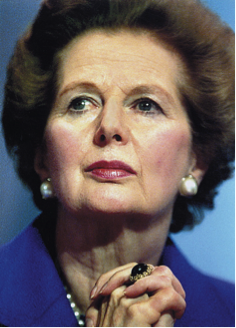
Back in the 80s, when Thatcherism was at its heights of pomp, we all wore suits with big shoulder pads, watched Alexis Colby in Dynasty on TV and were told, “Lunch is for wimps” by Gordon Gekko in the movie «Wall Street». Advertising and design went through a golden age, the high street was transformed through branded retailers like Next, and Saatchi & Saatchi were flying the flag with ads for British Airways, ‘the world’s favourite airline’.
Thatcherism brought us privatisation, offering us the chance to be shareholders in previously state-owned companies. And the sale of council housing meant more of us could become property owners. The emphasis seemed to be on the power of the individual not the power of society, about me not us. Has the legacy of Thatcherism cost us too much? And what are the implications for brands, as developing world economies have their equivalent of the West’s 80s boom? Is it a case of you or me or is there still a place for us too?
Looking after No.1
2008, of course, brought about a sea change in attitude. Bankers and then politicians seemed to have missed the plot. Lehman Brothers’ collapse in the U.S., and duck house expenses scandals in the House of Commons were, in many ways, evidence that those in power had lost touch with what was happening in the real world. That, somehow, their power had distanced them.
Evidence from Berkley psychologists Paul Piff and Dacher Keltner, suggests that wealth reduces compassion and vice versa. Their findings show how wealthier individuals are worse at recognizing the emotions of others and less likely to pay attention to people they are interacting with (e.g. by continually checking their smartphones in the company of others—take note everyone!). It seems that wealth and abundance give us a sense of freedom and independence from others. This leads us towards being more self-focused. Another reason has to do with our attitudes towards greed. Like our friend Gekko, the wealthier you become the more likely you may be to endorse the idea that “Greed is good.”
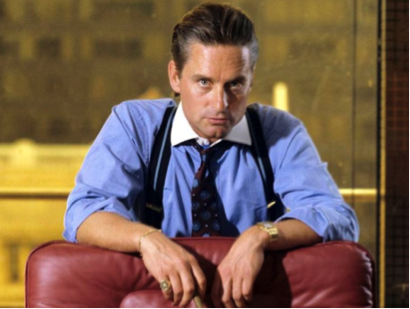
Conversely, they found that less affluent individuals are more likely to report feeling compassion towards others on a regular basis. The ‘a-ha’ moment in these findings hits home when you think that, according to the World Bank, there will 1.2 billion emerging middle-class consumers from Africa, Asia and the Americas by 2030. Of course they won’t all be like Mr Gekko, but it’s worth thinking about the implications.
We’re all middle class now
An estimated 40 million people joined the Brazilian middle classes between 2003 and 2011, which is why the beauty industry is booming there. Brazil now accounts for 10% of the global beauty products market, making it third behind the U.S. and Japan, according to Euromonitor.
Meanwhile, those like Nigeria’s Lagonistas will spend $25 billion (€19bn / £16.5bn) a year in each of Africa’s five largest cities, including Lagos, by 2020, according to consultancy McKinsey & Co. It’s typified by increasing examples of Afro-Dandyism—the pairing of Savile Row-style, rich fabrics and tailoring with the electric blue and orange hues from local brands Orange Culture, Kelechi Odu and Mai Atafo.
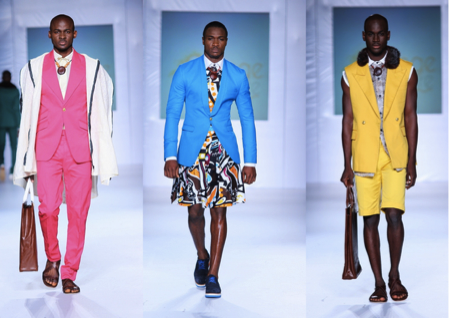
This rise in independence can also be seen at Afrofuture, an exhibit this year at La Rinascente department store for the Milan Furniture Fair. Beatrice Galilee, its curator, explains the trend’s importance: “Looking at the tired cycle of product launches and the hundreds of disposable objects that are being designed and produced over here, the innovation coming from Africa is refreshing.”
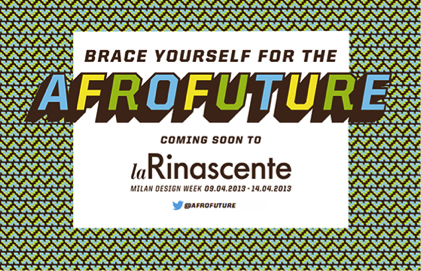
We’re on a mission
Does this mean the death of altruism? Hopefully, not. As ever, there are always two sides to every story. Just because some are enjoying their newly-found wealth doesn’t mean the notion of looking out for your neighbour or recognising the good in all of us has disappeared. In fact, quite the opposite. Again, we look to the Americas to see that it’s not just about me or you; there’s still room for us as well.
Here we can see people enthusiastically supporting brands that don’t close their eyes to social inequality, and (better yet) offer people a chance to play a part in fixing social issues. Like Diageo-owned Scotch Whisky label Buchanan’s, who asked young people in Bogotá, Mexico City and Caracas to participate in a volunteer project called ‘Tiempo Para Compartir’ (‘Time to Share’). Through Facebook, participants could sign up for projects, such as neighbourhood clean-ups and construction.
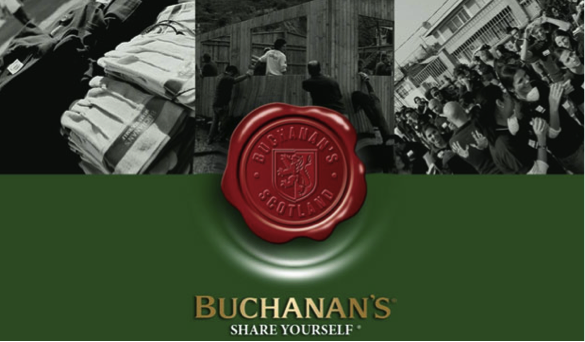
Similarly, restaurants in São Paulo—including high-end establishments such as Jun Sakamoto, Kaa and Girarrosto—launched an initiative where diners could opt for smaller portion sizes, while still being charged the full price. ‘Satisfeito’ (‘Satisfied’) dishes were a third smaller than the usual menu options, with the money saved being distributed by Instituto Alana to organizations fighting child malnutrition in Brazil.
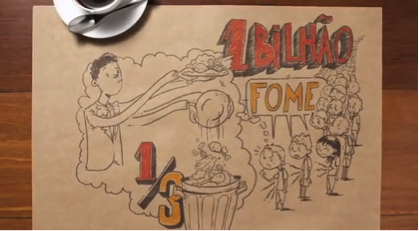
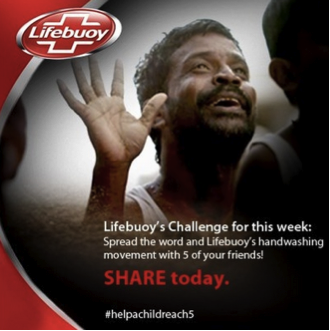
Brands that recognise they can do good for the less fortunate are more likely to get the backing of the people. Sometimes, it might be something as simple as a bar of soap. Washing your hands with soapy suds is, after all, the most cost-effective way of reducing the two biggest causes of child mortality. So, as the world’s leading health soap, Lifebuoy can make a difference by offering affordable, accessible soaps to help communities around the world improve hygiene through hand washing. The brand aims to change the hand-washing behaviour of one billion people by 2015. With attitudes like this, there does indeed appear to be hope for you, me and us.
About the Author

Greg Taylor became founding partner in global brand design consultancy Elmwood in 1989. Now Director of Brand Provocation, Greg is the creator and facilitator of Step Change™, Elmwood’s strategic tool for moving ideas forward. Clients include ASDA, Wal-Mart, Arla Foods, BBC, COI (Defra and DfT), Cable&Wireless, Comic Relief, Debbie & Andrew’s, Durex, Glasgow 2014 Commonwealth Games, McCain, and the Met Office.